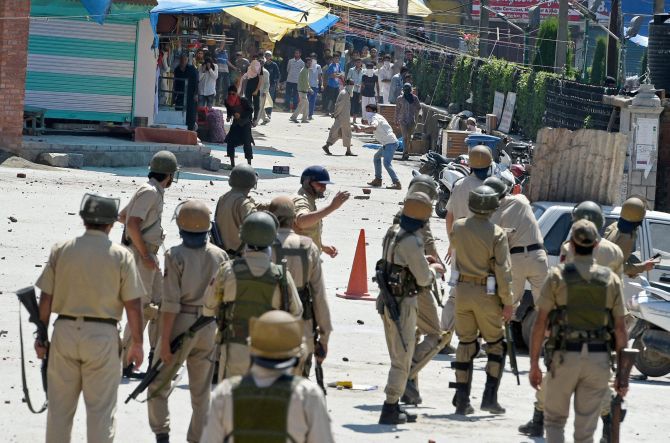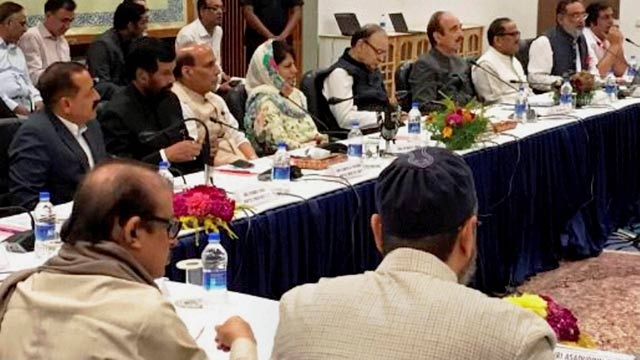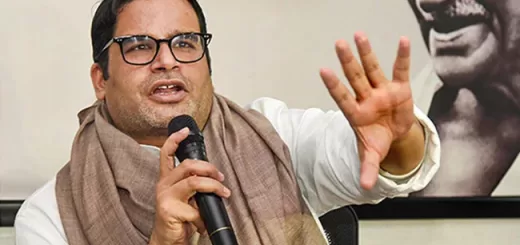Mistakes: How long, how many?
by Yasir Peerzada
The day Burhan Wani was killed nobody would have thought that his death will become an international issue and will bring two nuclear powers almost to a state of war.
In the last two decades, thousands of militants have been killed in the valley. So why has Burhan’s killing became such an issue? This is what the intelligence agencies are still trying to figure out.
The day Burhan was killed, the state government decided not to impose the curfew and allowed people to attend his funeral. This was the first mistake the state government did, because when people gather in thousands, especially in a volatile environment, there’s apt to be mass hysteria. For the police it becomes difficult to control the situation especially when police and political system are of different ideology. This difference resulted in the violence in Kashmir and is not ready to get doused even after so much loss to human lives and public property. Burhan was from south Kashmir which used to be the stronghold of PDP, the ruling party of Jammu & Kashmir. This was the reason why the state government didn’t want to impose the curfew on the day of Burhan’s death, so that they could earn some brownie points by showing the people that PDP government is different than its predecessor. Though this experiment failed miserably, the CM Mehbooba Mufti did not learn a lesson. Instead she kept on repeating the mistakes which resulted in three months of strike and curfew continuously.

- More than 30 people died and more than a thousand were injured in just 48 hrs after Burhan’s death. Emotions were high and the state government again failed to assess the situation and the so the fire spread from villages to cities to town.
Hurriyat conference which was reduced to irrelevance again became relevant and they took the advantage of the situation to call the shots like they did in 2010. All the three leaders Syed Ali Shah Geelani, Mirwaiz Umar Farooq and Yasin Malik joined hands together and started with their protest calendar which crippled the daily life in the valley. Protests rocked the entire valley and to control these protests, the police tried all the methods from pellets to crackdown, but then nothing seemed to work. All these measures only resulted in more number of casualties.
- All eyes then shifted onto Prime Minister N
arendra Modi and his government. Everyone thought he might visit Kashmir at her darkest hour.
He did not.
Union Home minister Rajnath Singh visited Kashmir though and he met officials and ministers but nothing much could be done since there was no roadmap to bring back normalcy in the valley . From south Kashmir to north Kashmir protests ,stone pelting and firing became the norm. Finally politicians in Delhi realized that Kashmir was burning and the issue was raised in the parliament. Discussion ensued and an all party delegation was sent to Delhi. This delegation also visited Kashmir but without any blueprint . They held meetings with the political leaders, security experts and a few members of the delegation tried to meet the Hurriyat trio but the latter refused to meet them.
Now, the blind eye policy towards Kashmir by the Central government is resulting in growing militancy. Some experts say that the Central government have decided not to talk to Hurriyat leaders because this will help them gain support at the national level. Politically this might be a good step for Prime Minister and his party but at the ground level in Kashmir, this will be dangerous for security forces.All the intell igence agencies and security agencies are busy in controlling law and order situation in the valley which is giving safe passage to militants to make their base strong again. Security forces are trying to control law and order situation and so no major counter- insurgency operations took place in the last 3 months in the valley. In south Kashmir, militants are patrolling the villages and motivating youth to join them which is becoming another big problem. These three months have once again shown that the trust between Kashmiris and rest of India has dwindled. Kashmiris are neither ready to accept that the people in the rest of India are with them nor rest of the country thinks human rights violations are happening in the valley. The reason for this is politics. For example, many Kashmiri youth were attacked across the country when they raised the current issue of Kashmir.
igence agencies and security agencies are busy in controlling law and order situation in the valley which is giving safe passage to militants to make their base strong again. Security forces are trying to control law and order situation and so no major counter- insurgency operations took place in the last 3 months in the valley. In south Kashmir, militants are patrolling the villages and motivating youth to join them which is becoming another big problem. These three months have once again shown that the trust between Kashmiris and rest of India has dwindled. Kashmiris are neither ready to accept that the people in the rest of India are with them nor rest of the country thinks human rights violations are happening in the valley. The reason for this is politics. For example, many Kashmiri youth were attacked across the country when they raised the current issue of Kashmir.
- Prime Minister is not speaking anything about Kashmir but raising issues of Baluchistan and POK to corner Pakistan. The need of the hour is to make things right in the valley and then corner Pakistan because if Kashmir is ignored like this, the situation will again be like 90’s and security forces will have to struggle a lot to bring back normalcy in the valley. All Kashmir is asking for right now is a healing touch.
How many more mistakes will it take for the government to understand this simple truth?
How many more?





